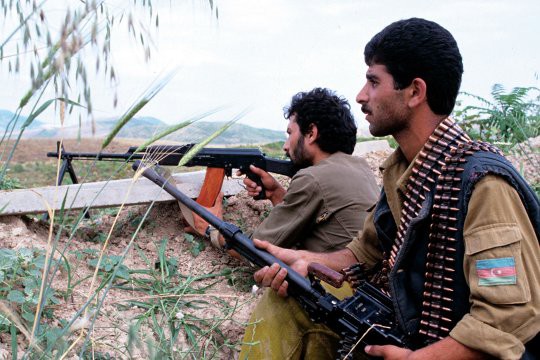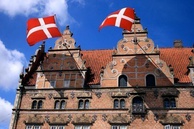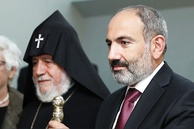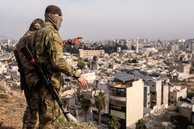During the First Karabakh War (1992 -1994) Armenia three times experienced the threat of falling to the Turkish intervention. Each time Russia managed to prevent such a scenario by peaceful means.
According to recollections [1] by Russia’s first Ambassador to Armenia Vladimir Stupishin, in the heat of the Battle of Artzakh (the Armenian name for Karabakh) “Burbulis and Grachev struck an agreement with the Armenian president to secure the legal status of Russian troops on the territory of Armenia”. The first Russian ambassador states: «We preserved our military presence in Armenia (after the disintegration of the USSR – author’s note) in accordance with the clearly expressed wish of its government, and, I’m sure, its people, who continue to view this presence as a major security guarantee, regardless of its scope. After all, motorized division in Gyumri (former Leninakan) proved fairly efficient».
Meanwhile, «in May 1992 there erupted a discussion in the Turkish parliament as to whether to dispatch or not to dispatch troops to Nakhichevan to defend the Azerbaijanis against Armenian “aggressors”, as Turkey allegedly had such a right under the Treaty of Kars of 1921»[2]. The discussion was held with the participation of Turkey’s Prime Minister Suleiman Demirel and President Turgut Ozal [3].
By that time the Third Field Army of the Turkish Armed Forces had been deployed on the Armenian-Turkish border with “more than 1,500 tanks, about 2,500 guns and mortars, more than 1,100 armored personnel carriers at its disposal”. The prospect of opening a second front against the Armenians acquired clear shape. Supporting the land forces was the tactical aviation command (up to 270 combat aircraft)»[4]. The Commander of the Turkish Land Forces Muhittin Fisunoglu said then that “all the necessary preparations had been made and the army was waiting for an order to advance”[5]
Russia approached the Turkish threat with utmost gravity: the State Duma held special hearings on a dramatic increase in the activities of the Turkish army near Armenia’s borders. Attending the hearings were Foreign Minister Andrei Kozyrev and Commander-in-Chief of the Joint Armed Forces of the CIS Air Marshal Yevgeny Shaposhnikov. Given the situation, on May 20, 1992 the commander urgently flew to Yerevan and during at a news conference at the airport he warned the Turkish side saying that “if one more party joined there (the Karabakh conflict – author’s note), we might find ourselves on the verge of a third world war”[6]. In turn, the Russian Ambassador to Turkey Albert Chernyshev, commenting on the possibility of Turkey’s intervention into the conflict and on Moscow’s reaction, pointed out that “the Treaty of Kars of 1921 does not envisage the right of either Turkey or Russia to military intervention”[7]. These statements produced a tangible impact on further moves of Turkish military and political circles concerning Armenia and the issue of Karabakh. Turkey, instead of attacking, chose to exert economic pressure on Armenia, by closing the border and by signing an agreement on the supply of Baku with munitions and on the retraining of Azerbaijani specialists, thereby violating the OSCE resolution of February 1993, which forbade the supply of munitions to the area of Nagorno-Karabakh conflict.
According to CA&C Press AB of the Institute of Central Asian and Caucasian Studies of Sweden[8], «by the spring of 1993, in the absence of any positive changes in favor of Azerbaijan, some circles in Turkey began to advocate the idea of direct military intervention. In April 1993 the Speaker of Refah Partisi and a deputy of Anavatan Partisi signaled the need for Turkey’s military interference in the Armenian-Azerbaijani conflict. Deputy Chairman of the Republican People’s Party (Cumhüriyet Halk Partisi) Istemihan Talai accused the Turkish government of rendering insufficient military assistance to the Republic of Azerbaijan[9]».
The Turkish Foreign Ministry notified the ambassadors of the UN Security Council member countries (the USA, Russia, Britain, France, China) that the developments in Nagorno Karabakh, as seen by Ankara, were reminiscent of the 1974 situation in Cyprus and that Turkey might resort to the same measures again “for the protection of the fraternal Azerbaijani people”.
Simultaneously measures were taken for a new invasion of Armenia – “the Third Field Army of the Turkish Armed Forces was put on high alert, the Phantom air attack squadrons on Turkish air bases went on round-the-clock duty for dealing the first blow”[10]. Passions were running high in parliament as well: deputy Bulent Ecevit, who was prime minister when Turks occupied Cyprus in 1974, called for occupying the southern regions of Armenia so that Turkey could link with Azerbaijan via Nakhichevan, Zangezur and Karabakh[11]. The Armenian territory came under more and more attacks from Turkey. The situation aggravated hourly.
In early May 1993 Russian Defense Minister P.S.Grachev, on orders from President Boris Yeltsin, paid a surprise one-day visit to Ankara. The Russian defense minister presented a brief and blunt view on the situation and left, without listening to Turkey’s considerations[12]. Reports by Russian media said that Grachev, during his visit to Ankara, “met with representatives of Turkish top military officials to discuss settlement of conflicts in Trans-Caucasia”[13].
After a harsh warning from Moscow the Turkish leadership for the second time waived the idea of intervention, not willing to risk running into confrontation with Russia. Nevertheless, Turkey did resort to a diplomatic showdown and economic sanctions.
Four months later, in September 1993, the Turkish leadership had an illusory idea that there was a chance to solve the Armenian issue by force “against the backdrop” of parliamentary crisis in Russia.
The 220th mechanized and the 9th artillery groups of the 9th Sarikamis Division of the Turkish Armed Forces came close to the border with Armenia and stood at a gunshot distance. The newly elected Prime Minister Tansu Ciller openly threatened to bring troops if the Armenian advance in Nagorno-Karabakh did not stop.
According to the reminiscences («Caucasian Chronicles. Formation of State and Diplomacy in Armenia») by the then Greek Ambassador to Armenia Leonidas Chrisantopoulos, in late September 1993 the Turkish leadership addressed the Russian parliamentary Speaker Ruslan Khasbulatov (in the heat of his confrontation with B.Yeltsin) with a proposal to support him in exchange for the agreement not to interfere in the planned invasion of Turkish troops in Armenia. Information on the possibility of Turkish invasion was obtained by L.Chrisantoloulos [14] from the French and US ambassador D’Arting and Harry Gilmore: ««Russian parliamentary Speaker Khasbulatov has struck a secret deal with Turkish Prime Minister Tansu Ciller… In case of Khasbulatov’s victory Russian border guards would be pulled out of Trans-Caucasia… This would enable Turkey to use the Kurdish issue as an excuse and carry out a limited intrusion into Armenia»[15]. However, once the anti-Yeltsin insurgency was suppressed, the Turkish troops immediately retreated from the Armenian border.
Therefore, Russia, throughout the entire First Karabakh War, would come up strongly against Turkey’s open interference in the Armenian-Azerbaijani conflict. Armenia’s joining the Collective Security Treaty on May 15, 1992 and the deployment of the 102nd Russian group in Gyumri produced a cooling effect on the General Staff and leadership of Turkey.
The opinion of the author may not coincide with the position of the Editorial
[1] http://armenianhouse.org/stupishin/docs-ru/mission/36.html
[3] https://ca-c.org.ru/journal/2012/journal_rus/cac-04/01.shtml#_ednref48
[4] https://russia-armenia.info/node/1172?ysclid=lu1emv1shx80861970
[6] http://www.armenianhouse.org/demoyan/turkey/ch4.html
[7] https://vstrokax.net/istoriya/turtsiya-i-karabahskiy-konflikt-konets-xx-i-nachalo-xxi-vekov/?ysclid=lu1sgilgmz75349858
[8] CA&C Press AB (ca-c.org.ru)
[9] https://ca-c.org.ru/journal/2012/journal_rus/cac-04/01.shtml
[10] https://vaykuneci.livejournal.com/44050.html
[12] https://iravunk.com/?p=268958&l=ru&ysclid=lu141z8kh220030327
[13] https://www.kommersant.ru/doc/47953?ysclid=lu0fz1lzw8900333151
[14] https://russia-armenia.info/node/34536?ysclid=lu15gjjik3936141405
[15] http://lratvakan.com/news/68522.html?ysclid=lu14p5wmlo472982649
read more in our Telegram-channel https://t.me/The_International_Affairs

 11:39 09.04.2024 •
11:39 09.04.2024 •



























